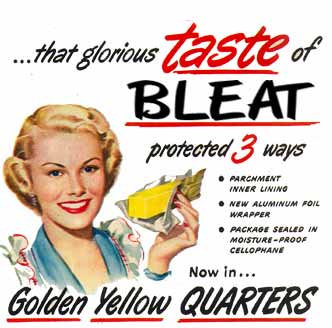 |
|
 All the D-Day doo-dah is done, so we can pack the vets in straw for another year, right? Pat the Greatest Gen on the head, chuck the duffers under the chin, and get on with hammering this new war as a miserable failure. If you like. But I spent D-Day watching something I’d like to discuss. Something important: cartoons. All the D-Day doo-dah is done, so we can pack the vets in straw for another year, right? Pat the Greatest Gen on the head, chuck the duffers under the chin, and get on with hammering this new war as a miserable failure. If you like. But I spent D-Day watching something I’d like to discuss. Something important: cartoons.
I’ve been chewing through the Disney War Years (link later) DVD set, and it’s quite a remarkable treasure. Depressing, in a way – and reassuring. Depressing because you sense a unified culture that recognized a common threat and would do anything to beat it. Reassuring because it’s apparent that wasn’t exactly so. The cartoons are little morality plays aimed at bucking up the national will, putting steel in the spine, gently guiding the reluctant towards their duties. Which were: don’t panic. Pay your taxes. Save bacon fat so we can sink Axis naval craft.
One of the earliest cartoons details the struggle between emotion and reason. Emotion is dressed like a caveman; Reason wears Mr. Peepers glasses and behaves like a cautious prig. Reason helps us intercede when Emotion wants to seize on bad news. Here the cartoon shows how newspapers appeared to some people:


But who did all this panic-mongering serve?
You know who!
Never you worry, though: we’ll whip that paperhanger, thanks to CORN!

This is from “Win With Food,” a preposterous account of national agricultural statistics. All the spaghetti the US produces would be big enough to make a spaghetti sweater for the entire planet! I’m serious. CORN alone would crush Hitler, as this graphic and sound file prove:
And then there’s taxes. Donald Duck appears in a cartoon encouraging everyone to pay up. As the cartoon begins he’s gung-ho, ready to make any sacrifice for the war – but he deflates when he learns this means he has to pay his taxes. And what an onerous burden they are. We see his form; he lives at 1313 Hollywood Blvd; his profession, actor. His dependants number three – the orphaned triplets of Huey, Louie and Gooey. (As Gnat calls them.) His annual income is a little over $2100. After his exemption for the motherless triplets (and who did take care of them when he was drafted in a previous cartoon?) his annual tax burden is $13.

Thirteen dollars. But he’s not alone; everyone had to pay taxes. Even the spats-and-tophat crowd: the name on this tax return above is “Asterbilt,” a name that would have struck the audience as instantly recognizable, like Rockemorgan. And what would taxes do? Bury the Axis, and cause an outpouring of joy among anthropomorphic steam whistles. (Sound file.)

But in another cartoon Donald wants to spend his money on fun, not taxes. By now quarterly payments are the rule. Does he save? Well, he would, but a duck in a zoot suit steers him to a gin joint to spend it now and have some fun, brother. A proto-Scrooge McDuck complete with bad posture and tartan get-up advises him to save. The battle is joined. Looking at this picture, you realize the advantage of the Allies:

We had iconography on our side. You could distill it down to a symbol and an abbreviated ration of facial hair. And you could amplify the symbol’s menace by making it ubiquitous, which was both symbolic and literal: they did want it to form and shape all life. Kids today would probably know what that symbol was. But when Donald gives the zoot-suiter his due, the rubble might make some say wha?

V for Victory. And the Morse Code for V.
If you wondered who we were fighting, Disney gave us some helpful reminders: Giant Mechanized Nazi HunBeasts.

And when victory came - which it surely would - the red clouds would part and reveal all the stars in the firmament. All 48 of them, in fact.

Even if you're not a Disney fan, this set is worth getting. It also includes "Victory through Airpower," other training shorts, and outtakes from "Donald Gets the Syph." Well, just kidding about that last one. Perhaps it's in an Easter Egg in the menu; these discs are full of hidden treasures.
|
|
|
|
|